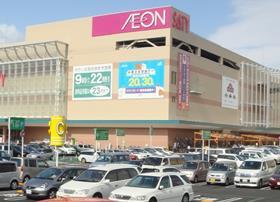
Top-Qual, a leading Tasmanian fruit exporter, recently sent four container loads of apples to Japan to coincide with a nationwide promotion for Australian foods to be held by major Japanese retail group Aeon in July.
Aeon’s Jusco supermarket chain has ordered two containers of Fuji apples, which are bound for the port city of Nagoya, while another Aeon subsidiary - Max Valu - is taking two containers comprised of a range of varieties, including Red Delicious, Granny Smith, Cripps Pink, Jonagold and Golden Delicious, for sale in Osaka.
The orders follow the success of a trial shipment of mixed varieties to Aeon’s Max Valu last year which was coordinated by Fruit Growers Tasmania, and Top-Qual’s Ken Bell told Fruitnet.com that the growth had been driven by Aeon’s interest in sourcing food directly from Australia, particularly Tasmania.
“Aeon already has strong connections in Tasmania as they own Tasmanian Feedlots Proprietary Ltd and are buying fresh produce like carrots, onions and now apples,” he told Fruitnet.com.
The apples are due to dock in Japan towards the end of next week, in time to feature in an “Australian Fair' promotion that Aeon is running nationwide from 12 July.
While the volumes are only small, the shipments mark an interesting development for Japan, which has been a very tough market to crack for imported apples – and they appear to reflect a change in apple consumption habits in the world’s second-largest economy.
“The traditional apple market in Japan has been for large fruit only – this fruit was served after a meal as a dessert,” said Mr Bell. “Now Max Valu are targeting a different generation of consumer by purchasing smaller pieces of fruit – and targeting the snack market.”
While changing consumption habits may signal a more favourable future for imported apples, however, Japan remains a challenging market to penetrate in terms of quarantine restrictions.
“The biggest hurdle we face is the need to fumigate fruit,” said Mr Bell, who explains that the presence of codling moth in Tasmania makes fumigation compulsory. “We will try and use our expertise to get through the fumigation process trouble-free, but there is still a big risk of it damaging the fruit. The cost of flying a MAFF officer from Japan to supervise the fumigation process and loading of containers is expensive.”
Asked whether such efforts are rewarded by the returns that can be achieved in the Japanese market, Mr Bell said that prices are similar to what would be gained in the domestic market but that the shipments are driven by a more long-term strategy.
“It goes deeper than prices – it’s about relationship building,” he told Fruitnet.com. “Our cherry industry in Tasmania is growing rapidly and we are seeking new markets worldwide to export the fruit to. Both retail chains want to be part of this growth. We now have fumigation-free access for cherries to Japan and if we can get the same access for apples it would be a big boost. We hope that one day we’ll be able to export apples to Japan under a similar method to the one we use to ship apples to Taiwan.”
Last year, Top-Qual along with two of the other oldest fruit companies and premier players in the state’s cherry industry – Reid Fruits and Hansen Orchards – joined forces to market their fruit under a single entity called Cherry Isle Tasmania, and Mr Bell is hopeful the move will help to boost exports to Japan. “Almost all the exports to Japan were made up of the white-fleshed Japanese variety Sato Nishiki but we hope to send some dark cherries next season,” he said.



